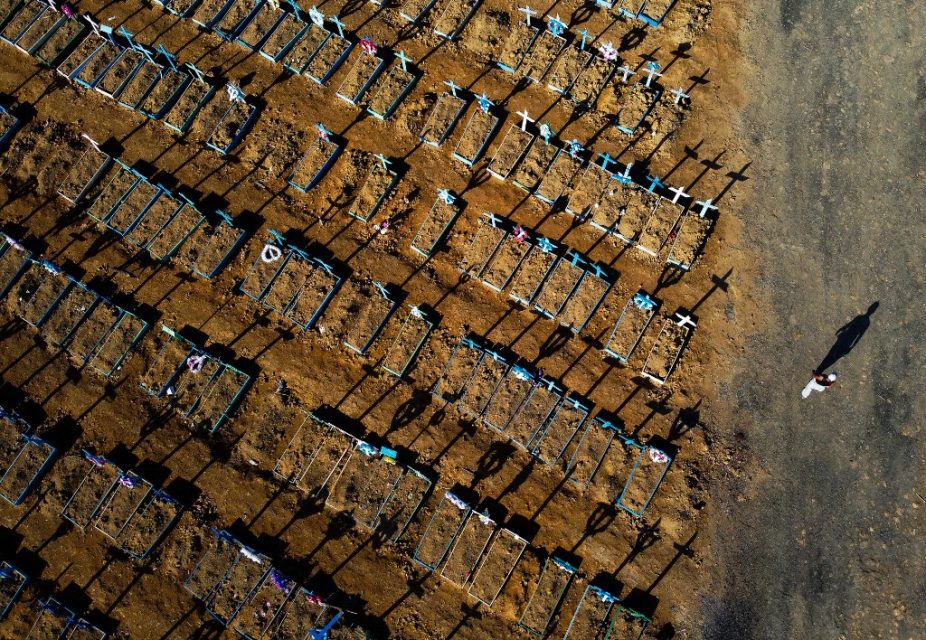
RIO DE JANEIRO, Brazil (AFP) — Just over six months after registering its first case of the new coronavirus, Brazil crossed the grim threshold of 120,000 people killed by Covid-19 Saturday, with no end in sight to the crisis.
The country of 212 million people has now registered 120,262 deaths from the virus and 3,846,153 infections, the health ministry said in its daily update.
Brazil is just the second country to surpass a death toll of 120,000 in the pandemic, after the United States, where the number killed is now more than 182,000.
Unlike in Europe and Asia, where the virus hit hard and then subsided, Brazil’s outbreak is advancing at a slow but steady pace, said Christovam Barcellos, a researcher at public health institute Fiocruz.
“Brazil is unique in the world. Since the start of the pandemic, its curve has been different from other countries’, much slower,” he told AFP.
“It has stabilized now, but at a very dangerous level: nearly 1,000 deaths and 40,000 cases per day…. And Brazil still isn’t past the peak.”
The pandemic has also turned political in Latin America’s largest country.
President Jair Bolsonaro has downplayed the virus and attacked governors and mayors who imposed lockdown measures, arguing the economic damage is worse than the disease itself.
The far-right leader is instead pushing the drug hydroxychloroquine as the solution to the health crisis, despite studies showing it is ineffective against Covid-19.
He again said Saturday the controversial medication had “saved thousands of victims’ lives” in Brazil.
Bolsonaro even took what he called the “right-wing” drug himself when he was diagnosed with the virus in July.
“It’s shocking the way (Bolsonaro) has handled this. It’s not just his denialism…. He has often crossed the line of disrespecting victims,” said political analyst Michael Mohallem of the Getulio Vargas Foundation.
“The number of deaths is scandalously high,” he told AFP. “I think someday he’ll have to pay the price.”
The virus has meanwhile spread to more fragile demographic groups and to the interior of the country.
Impoverished residents of overcrowded favelas, or slums, have been hit especially hard.
So have indigenous groups in the Amazon rainforest, who have a history of vulnerability to outside diseases.
© Agence France-Presse







